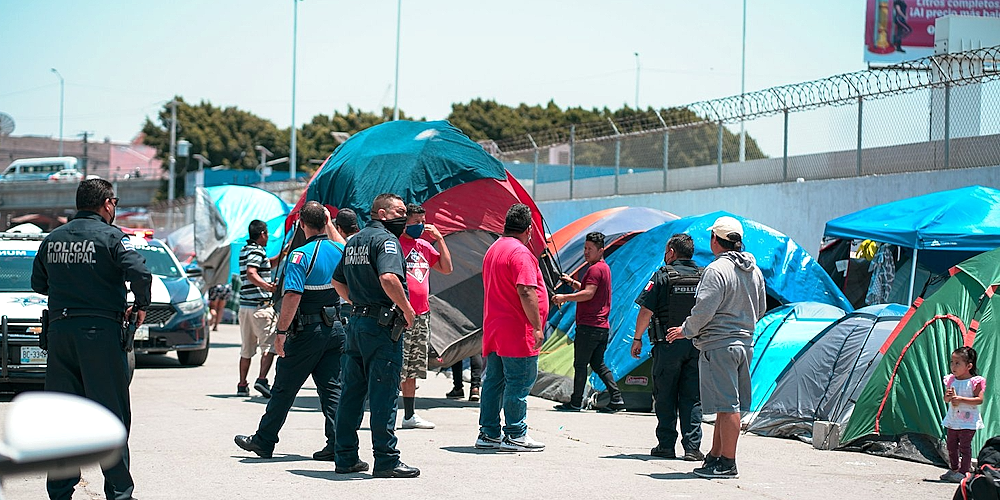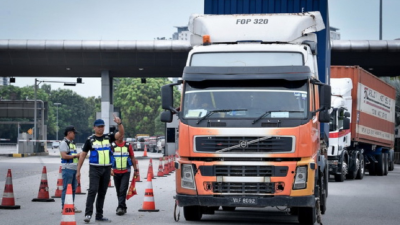These days, travel to any European capital — Athens, Rome or Paris, for example — and you will see groups of immigrants huddled together on the streets and in the alleys, bleary-eyed and haunted.
If one walks by them slowly enough, it is possible to catch bits and pieces of Urdu and Punjabi. That’s how you know they are from Pakistan.
These are the ‘lucky’ ones — the ones who have made it to Europe alive. Many more like them never make it.
A new report on human smuggling in Pakistan, published by the Human Rights Commission of Pakistan last week, outlines the journey of one such migrant from Hafizabad in Punjab.
Like hundreds of thousands of others, he paid an agent to smuggle him out of the country.
The report details how a person is passed from agent to agent until they manage to get to the EU or North America.
It shouldn’t come as a surprise, then, that Pakistani migrants have been discovered in such faraway places as the Darién Gap — the only land bridge between North and South America, through which a dangerous route runs between northern Colombia and southern Panama and ultimately leads to the United States border areas.
From there, migrants often make a run for what they imagine will be a better life.
In Europe, Pakistani migrants can often be found languishing in places like the island of Lampedusa, off the coast of Italy. Many of them arrive there via Egypt or Libya, where smugglers put them on boats with a promise to get them to the Italian coast.
It was smugglers like these who had lured the 20 Pakistanis that died last summer off the coast of Greece, when a migrant vessel holding hundreds of people was allowed to sink by the Greek coast guard.
As an aside, it seems worth pointing out that the case is still languishing in Greek courts, and there is no indication of whether the surviving migrants or the heirs of those who died will ever be able to get any justice.
That is how much a migrant’s life is worth these days in the developed world.
In a century that promises to herald unprecedented human displacement owing to global economic and climate-related crises, it seems a given that more and more Pakistanis will take to wandering the earth in the hope of finding sustenance and a chance at a better future, even if that means rebuilding their lives in a foreign land.
However, when one sees Pakistani men huddled together on the streets of Europe, looking hungry and miserable, one wonders whether they still consider being in the EU as any kind of guarantee of a better life.
Most of these men are low-skilled workers who do not even know the languages of the countries to which they wish to migrate. This means that they are usually relegated to jobs such as washing dishes at the back of restaurants and other menial tasks that provide, at best, a difficult and hardscrabble existence.
The bulk of the money that they do make goes towards paying off the debts they took on to pay the smugglers who brought them there in the first place.
The “better life”, they must soon realise, is just a fantasy they were promised by smugglers just so they could be lured into leaving Pakistan at an exorbitantly high personal and financial cost.
Not all Pakistanis who land up in foreign lands through dubious means suffer equally
One industry in Pakistan that seems to be very organised and has been quite successful in ensuring that its recruits have plenty to do is the begging industry.
It is such a successful venture that it has now decided to start exporting to, and expanding in, other countries.

Unlike the desperate, low-skilled workers toiling in the smoke and stench-filled backrooms of restaurants and shops in Europe, these beggars do not need human smugglers to get them into foreign lands.
Instead, they prefer to utilise pilgrim visas to places like Saudi Arabia and Iran, etc.
As many Pakistanis may have seen for themselves during Haj, these beggars set up shop outside the holy places in Makkah and Madinah, where they harass foreign pilgrims for money just as they do shoppers in markets across Pakistan.
They are relentless, master manipulators who know how to pull at their victims’ guilt and get them to part with their money.
The beggar problem has become such a nuisance that the Kingdom of Saudi Arabia has taken it up officially with Pakistan.
A new agreement was signed recently between the two countries under which Pakistan promised to try and curb the export of beggars to Saudi Arabia.
The very fact that we had to do such a thing should be reason enough to feel embarrassment and shame at a national level.
However, when our leaders themselves feel little shame in extorting money from this or that wealthy country, it is no wonder that our beggars, too, feel entitled to capitalise on the guilt of others to enrich themselves.
Working hard and doing things the right way does not seem to be a strategy that has occurred to either leader or beggar in Pakistan.
As many have pointed out, this bizarre picture of desperation on one hand, presented by low-skilled migrants, and entitlement on the other, as portrayed by pesky beggars, forms a miserable image of Pakistan and Pakistanis in the minds of people who live abroad.
The Pakistani government not only fails to curb human smuggling, it also does little to try and help those poor migrants who find themselves homeless through the Pakistani diplomatic missions abroad.
The only reason Islamabad has been forced into taking action to curb the export of beggary is because both Saudi Arabia and the United Arab Emirates have reportedly threatened to stop handing out visas to Pakistanis altogether.
Meanwhile, the millions of Pakistanis who have no intention of paying human smugglers to get them out of the country and who could never consider resorting to beggary are stuck at home with their green passports.
Because the actions of some wrongdoers have created the impression that Pakistanis cannot be trusted to tell the truth at all.
Hence, legitimate travellers, students and workers who apply for proper visas must suffer the extra scrutiny at foreign embassies and frequent denial of visas.
The bad acts may be committed by a few, but their costs are inevitably borne by all.
ADVERTISEMENT
ADVERTISEMENT








































